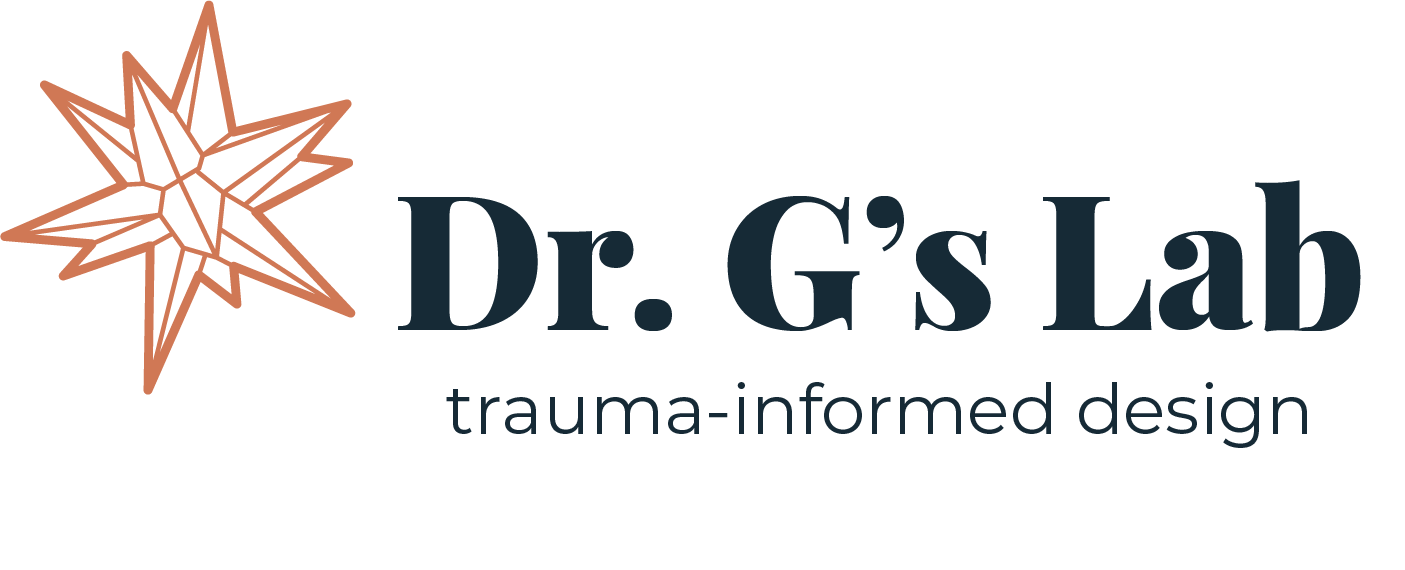Trauma-Informed Design Projects
Step into the world of Dr. G's Lab and discover our inspiring trauma-informed projects. Explore our work, where we've crafted user-centered solutions for youth, prioritizing their well-being and healing.
App Development with High Schoolers
In partnership with Peak Education, Dr. G and team conducted user-centered research to gain insights into an app dedicated to connecting high school students to college students for real advice on the college experience. After delivering a compelling wireframe, Peak Education is now engaged with the lab to develop the app and bring it live!
Trauma-Informed Content for Multicultural App
Dr. G contributed content about adverse childhood experiences (ACEs) and the Domains of Wellness to Samahra, an app developed for parents of multicultural children.
Hackathon with Compton Unified students
Dr. G served as a subject matter expert on trauma and resilience in a hackathon hosted by ScaleLA and Blue Shield. The result of the hackathon was an app called Ohana developed to help families stay connected in fun, interactive ways. Dr. G was responsible for beta testing, user journey, and user personas.
Redesigning for the CDC
A coveted project for Dr. G: being asked to help redesign the adverse childhood experience (ACEs) pyramid used on the CDC website and across training collateral internally and externally. Dr. G worked with doctors and designers to produce low-fidelity sketches of a new version of the ACEs pyramid.
Social Emotional Learning with Latinx Students
Conscious Cultura specializes in creating a mindfulness curriculum from a Latinx cultural perspective. Dr. G helped with the data collection and analysis of the curriculum creating journal check-in sheets for students and other methods for gathering input.
ACES-informed Ecosystem of Care
As the Director of Product Design, Dr. G designed a post-diagnosis treatment, care, and support services plan using an ACEs (adverse childhood experiences)-informed Ecosystem of Care framework. The ecosystem design involved stakeholder interviews, alignment workshops, discovery and mapping, and visualizations of the holistic customer experience. This Ecosystem of Care was further developed with storyboarding, service storming, and vision stories. This model can be scaled and sustained in communities across the country.
TESS AI Chatbot
Dr. G helped university students manage their symptoms of depression and anxiety using TESS, a psychological AI chatbot. This therapeutic tool offers interventions through integrated mental health support, psycho-education, and reminders. Data analysis and qualitative surveys supported this human research study.
Domains of Wellness Toolkits
Using archival data, Dr. G created toolkits to inform families of evidenced-based ways to mitigate the effects of toxic stress and adverse childhood experiences (ACEs) through Center for Youth Wellness’ Domains of Wellness. The toolkits were created in English and Spanish and were designed with accessible fonts, colors, text, and visuals. Toolkits were used by behavioral health practitioners and shared with families in care packages.
Trauma-Informed Reopening Design Sprint
Dr. G developed a five-day virtual design sprint to assist an organization in their response to COVID-19. The design sprint included brainstorming, super dot votes, and journey mapping. This project led to the development of the ACEs-Informed Ecosystem of Care.
Sister Hope AI Chatbot
Dr. G evaluated the use of Sister Hope, a psychological AI chatbot, at a Catholic school in San Francisco, CA. The chatbot delivers brief conversations in the form of faith-based integrative mental health support, psycho-education, and reminders. Dr. G. conducted online surveys and focus groups to evaluate the usability, accessibility, content, and suitability of Sister Hope.
Human Subjects Research
Dr. G designed an assessment program that quantified and defined three emotions that people typically mention when seeking weight loss: how they feel about their health, their motivation, and their self-esteem. Dr. G’s multidisciplinary approach addressed psychological, social, environmental, and biological factors to ensure comprehensive care, best practices, and positive outcomes.
UX Research
Dr. G worked with a school administration to deliver information to parents using a more user-friendly design. After administering surveys and assessing the results, Dr. G designed wireframes to improve school communications. Additional iterations were made based based on additional surveys and qualitative feedback.
Empirical Research
Dr. G conducted empirical research on the effects of caring for a child with diabetes mellitus type 1 (T1DM) on family relations. The study examined three research hypotheses and gathered data from measures administered to 56 caregivers. Major findings were identified on the impacts of caregiver support, stress, and quality of life.
Communications Psychopathology
Using archival data from communication disorder studies, Dr. G designed a new clinical protocol to aid in diagnosing communication pathology in pediatric spectrum disorders. The protocol included the research question, background, objectives, methodology, consent form, clinical research form, and references, and was created for iteration by future communication researchers.


